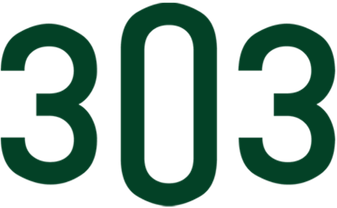iOS changes and Facebook: Everything you need to know

On the 16th of September 2020, Apple released a new version of its iOS operating system - iOS 14. It was also a day marked by a lot of worry, fears and uncertainty about the state of Facebook and Apple's decision to change the way we do digital marketing.We knew that the new changes would impact the way Facebook Ads were served. But how exactly would those changes affect the reporting, ads, and optimization?In this blog, we'll cover everything you need to know, from covering the changes to giving you specific actions you can take to still get the results your business expects. Let's get into it!
What are the iOS changes?
In short, with iOS 14, Apple updated its operating system with new features that limit data collection. More specifically, they introduced changes to how you handle conversion events from tracking tools such as the Meta Pixel.Since Apple's new policy is designed to protect users' privacy, the App Store now requires every app that gathers and shares data to disclose that they are tracking information via an authorisation prompt, as stated in their AppTrackingTransparency framework.Users were able to experience the updates since January 2021, but as of September 2021, the percentage of opt-in rate stands at a low 21% for app tracking.If users decide not to opt-in to tracking, it is certain that ad personalisation and performance reporting will face severe limitations, changing the way we approach Facebook Ads.
How the iOS 14 update impacts Facebook Ads
Needless to say, these policies affect every business that runs Facebook Ads.While this is great news for people who have been concerned about privacy issues, it has real implications for marketers and business owners alike. Here are the features that will face the most significant impact if users decide to opt out of the iOS 14 prompt:
Meta Pixel
This Pixel is a piece of JavaScript code that tracks actions on your website, such as when someone adds items to their cart or signs up for your newsletter.When someone visits your site after clicking on a Facebook Ad, this cookie sends information back to Facebook which helps advertisers like you target their audience more effectively.Undoubtedly, numbers will be affected and the reports will be less accurate.
Event Tracking and Optimisation
Each domain will now have a limit of eight conversion events for tracking purposes. Basically, this changes the way advertisers work with ads as they will have to choose the eight events they want to optimise.With fewer data points, smaller businesses may see themselves more affected by this change.
Retargeting
Retargeting is a powerful tool that allows you to reach out to people who have already shown interest in your brand. It can be used to target visitors who have viewed but not converted or users who have clicked on ads from competitors.You might notice numbers drop because iOS 14 users who opted out won't be included in this feature.
Dynamic Ads
Facebook's Dynamic Ads were created to make your life as an advertiser easier. With this feature, you don't have to create individual ads for every product you sell, but rather Facebook uses its machine learning capabilities to automatically pick items from your catalogue to show those products or services to a specific audience based on factors such as their interests, intent, and actions.This powerful feature is also part of the group that will see itself affected by the iOS 14 data protection policies and its effects on retargeting & audience segments.
App Installs
You will not be able to track iOS 14 devices. Additionally, reach and frequency will no longer be buying options for advertisers that create an App Install campaign for iOS 14+ users. Moreover, If your App Install campaigns are set to target iOS 14+ devices, you'll need to report on data from Apple's SKAdNetwork API for mobile App Install and other conversion events.
Ads Manager, ads reporting and the Ads Insights API
These Facebook tools enabled real-time accurate reporting of data for advertisers to manage their Ad campaigns effectively.The iOS 14 update caused delayed reporting, estimated results, no support for breakdowns, as well as changes to account attribution window settings as the biggest limitations to the measurement of web conversion events.
Facebook’s response to iOS 14
Facebook knows what's up. They're probably not too happy about it, but their only option is to help their users so that the platform stays relevant.For this, they've taken steps to ensure advertisers can continue to run effective campaigns. As part of this effort, they have released:
- Aggregated Event Measurement pixel processing for iOS 14+ devices as a protocol to help improve conversion optimisation while still maintaining user privacy.
- New delivery statuses to Facebook Ads Manager, these are updating limit for when an app ID reaches the nine iOS 14+ allowed App Install campaigns, and pending limit for when you create an additional iOS 14+ campaign that will not be immediately delivered until you turn off an existing one. For website event conversion campaigns, there is setup error for when an ad is turned off due to the fact that there was no domain associated with a paired pixel.
A number of helpful articles to help you continually get the most out of Facebook Advertising.
Things to consider when launching a new Facebook Ad campaign
Here are five things to consider when launching a new Facebook Ad campaign after the iOS 14 changes:
Your Facebook Ads will not be able to track conversions from users who opted out of tracking in iOS14.
If you need to report numbers to higher-ups in your company or if you run your own Facebook Ads, expect to see a lower conversion rate on your display. This doesn't mean fewer conversions though, just fewer that are recorded.
For iOS14 devices, Facebook will not enable real-time reporting and data be delayed by up to 3 days.
The new rules have forced Facebook to stop reporting conversions immediately. Now, conversion events will be reported after they are notified to Facebook by SKAdNetwork’s API.
You will only be able to optimise eight Conversions Events.
Prioritising will be key to getting the most out of Pixel. With this new setting, you can choose up to eight standard events that the platform has received through the Facebook SDK for iOS in the past 90 days.
Facebook will no longer have the capability to support category breakdowns of iOS 14+ users.
Remember this change applies to both web and app conversions, and you will not be able to visualise your consumers by age, location, or gender.
The attribution window settings will be set to the ad set level rather than the account level.
This is not necessarily a bad thing, and actually, might be the key to making sure all measured conversions are the same ones used to make informed optimisation strategies.For IOS 14+ the attribution window for App Install campaigns will be provided by Apple's SKAdNetwork API at seven days rather than the previous standard of 28 days.
Consider hiring experts.
Apple keeps updating, and Facebook keeps advertising.If you're a business owner, you might have noticed things are always changing, and you can't always rely on what you learned last week.So why not hire experts who have the full-time job of keeping themselves in the loop and making it happen?
Ways to navigate Facebook Ads around the iOS 14 update
The iOS 14 update has had some significant effects on the way we navigate Facebook Ads—and while they may seem like big changes, they don't have to be scary! Here are some ways you can make the most of your ad experience:For measuring web and app events.-
- Set up and take advantage of Aggregated Event Measurement tool.
- Verify all your domains in order to enable the owner's permission and the authority to edit a web event.
- Use the eight conversion event limit wisely.
- Use targeting expansion and broad audience as alternative targeting strategies.
Use the following Facebook resources to learn more:
- Learn how to verify your domains.
- Learn more about event configuration or go to Events Manager to get started.
- Learn more about Aggregated Event Measurement.
For measuring app events.-
- Update your systems to Facebook SDK to the latest version to get the best user experience during the configuration process.
- After installing your iOS mobile app, make sure you connect it to Facebook.
- Use the Events Manager tool to configure and pick your eight prioritised conversion events.
- Connect your product catalogue to the pixels and app SDKs.
- Configure your events so that they are enabled for both the mobile app destination and website domain to optimise delivery.
Use the following Facebook resources to learn more:
- Learn how to connect your app on Facebook for Developers.
- Learn more about how to configure app events.
Key takeaways and the future of Facebook Ads
The iOS update was a big one, and it made some pretty significant changes to the Facebook app. While some of these changes can feel like a pain at first, they can often end up being a welcome improvement.However, it's no secret that people are increasingly concerned about their data and privacy online. This is likely to be what makes it or breaks it for the platform, especially when it comes to Facebook Ads.Facebook has survived many challenges in its lifetime, but the company understands that staying relevant in people's lives and earning their trust is key to its long-term success and sustainability.In this short time, it's not yet clear what the full effect of these changes will be or whether they'll ultimately help or hurt Facebook—but we can still learn lessons from this shift and what it means for the future of social media.

.avif)



